It’s Because They Don’t Want To Get Distracted By The Sexyness Of That Beard. Like “Dude! This
It’s because they don’t want to get distracted by the sexyness of that beard. Like “Dude! This needs to stop. We are trying to save the Universe here“

I got a four-blade razor !
More Posts from Rocketbabyworld and Others

“The most difficult thing I had to achieve in this film was creating the fabric for the Captain America Stealth Suit. The Russos were very specific that they wanted a suit that was made of textured, woven, hard fabric like a Kevlar and not a printed stretch suit like you see over and over again in these films. But in reality it needed to be made of a stretch fabric that would allow movement and comfort, as well as the ability to be constructed into a more realistic military type trouser and protective top. I went through many incarnations of printed textures on stretch which then posed a whole new set of challenges and problems. The HD cameras made raised textures strobe or moiré. So finding the right one became a trial. Then the printing ink would shine like plastic, which I disliked. It took four months of research and development to create a texture that seems so simple and was yet, so complicated.” - Judianna Makovsky
This is so true. I liked cacw but this is what really ruins it for me
but the entire first half of CA: the first avenger was showing steve's childhood and backstory.
(assuming this is a reply to this post)
By the time we see Steve in CATFA, he’s already an adult trying to enlist in the war. CATFA showed us a nice backstory of who Steve was (who he had grown to be at that point) before he had the serum, and who he turned into after it.
Captain America: Civil War did not show us:
- who Steve’s mother was, what she was like, what she looked like, if she influenced Steve at all, what memories he has of her, how old she was when she died, how she died, how exactly her death affected Steve
- who Steve’s father was, if he was in Steve’s life at all, if he was symbolic in any way, what his name was, how he died, if his death affected Steve at all
- what steve looked like as a little kid (omf baby steve can you imaGINE)
- why Steve believes the things he believes, how he grew to fight prejudice, if prejudice and assumptions were important things in his childhood- if they had any affect on his family or on him- the evolution of his character born both out of himself and out of his environment and the things that must have happened to him
Captain America: Civil War did show us:
- who Tony’s mother was, what she was like, what she looked like, that she influenced Tony, what memories he had of her, how old she was when she died, how she died, and how exactly her death affected Tony
- who Tony’s father was, that he was in Tony’s life, that he was symbolic, what his name was, how he died, and how exactly his death affected Tony
- what Tony looked like as a young adult
- and why he believe the things he believes, how he grew to fear attachment and resent himself, the things he did and saw in his youth that impacted him in his adult life, the evolution of his character born both out of himself and out of his environment and the things that did happen to him
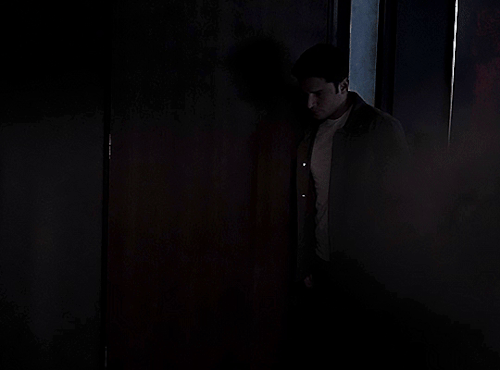
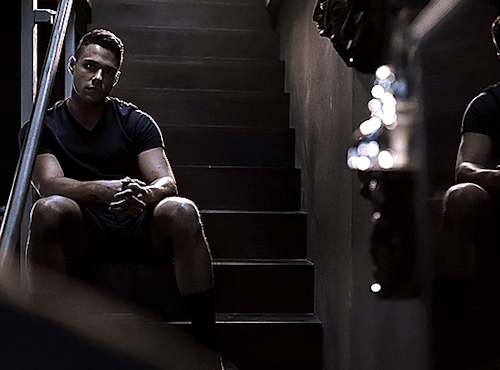
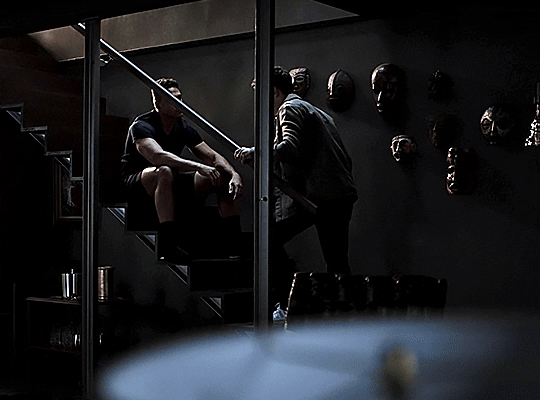

@giftober 2024 | Day 14: stairs
Awww. Steve would be embarrassed. Poor guy.
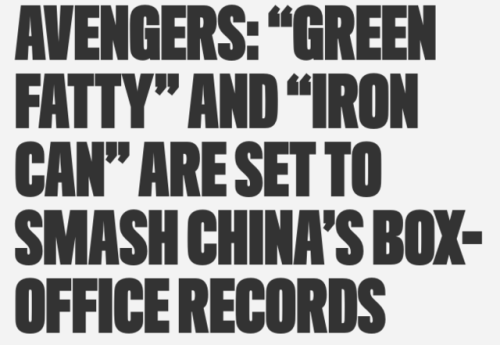
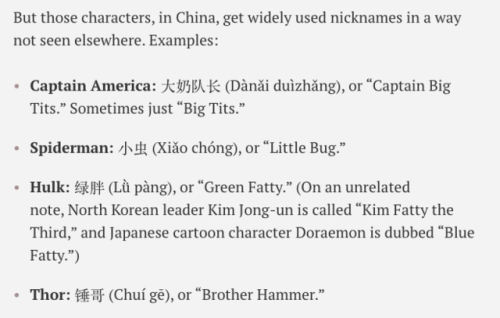
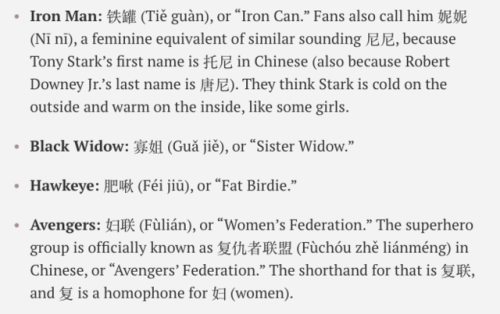
today I learned the Avengers’ Chinese nicknames and now I’m crying
I don’t get it guys
I just don’t understand how people can hate/not like marvel heroes. They are literally all little bundles of goodness wrapped in flaws that make them human and relatable. I love each and everyone one of them for different reasons, never could I ever say a bad word against them.
reblog if you cherish and protect all of the marvel heroes <3

Friendly reminder that when Joe Simon and Jack Kirby, both Jewish, created Steve Rogers America had not yet joined the war. They created Steve as a form of protest for Hitler and what was going on in Europe.
Joe Simon quote:
“We both read the newspapers,” Simon said. “We knew what was going on over in Europe. World events gave us the perfect comic-book villain, Adolf Hitler, with his ranting, goose-stepping and ridiculous moustache. So we decided to create the perfect hero who would be his foil. I did that first sketch of Captain America, and Jack and I did the entire first issue before showing it to (publisher) Martin Goodman at Timely Comics. He loved it immediately.”
Friendly reminder that the first issue of Captain America, which featured art of Steve punching Hitler in the face, caused a lot of controversy among the Nazi sympathizers in New York, so much so that Simon and Kirby were constantly being threatened. At one point Timely (re:Marvel) received a call from someone in the lobby threatening bodily harm to Kirby if he showed his face. And Kirby, proving just where Steve got his spirit from… went on down there to fight the bastard.
“…Jack took a call. A voice on the other end said, ‘There are three of us down here in the lobby. We want to see the guy who does this disgusting comic book and show him what real Nazis would do to his Captain America’. To the horror of others in the office, Kirby rolled up his sleeves and headed downstairs. The callers, however, were gone by the time he arrived.” Based on everything we know about Kirby, these Nazi crank-yankers got lucky.”
But the threats did not stop there…
“Years later, [Kirby] told an interviewer, ‘I once got a letter from a Nazi who told me to pick out any lamppost I wanted on Times Square, because when Hitler arrived, they’d hang me from it. It was typical of a genre of fans who have long since died out.”
Friendly reminder that when America did join the war, and despite the success they had with the Captain America comic, both Simon and Kirby joined the service. Kirby was drafted into the Army, Simon joined the Coast Guard. In fact Kirby was a successful scout for the army and during that time discovered and helped liberate a concentration camp. During his service he got severe frostbite and almost lost his legs. Afterwards he was awarded a Combat Infantryman Badge and a bronze battle star.


Friendly reminder that both Kirby and Simon were proud of Steve to their dying day. In fact, according to Joe Simon’s granddaughter, Megan Margulies, Joe’s apartment, right up until the day he died, was covered floor to ceiling in Captain America paraphernalia.
…and this is the legacy that Nick Spencer is denigrating with this current story-line.
A random pretty irrelevant thing:
Reblog this post if you’re a Team Cap
I always thought that Cap looking like he is was kind of statement. But not only for nazis. For everyone. You can’t only fight evil that affects you personnally. Sometimes you have to make a choice. Maybe you are not a target for nazis it doesn’t mean you shouldn’t punch them. For all I know of history of that time I think it was a powerful and timely ()))) statement
But the real reason I had to chime in was that Steve Rogers is my favorite superhero. Why? Because unlike other patriotism-themed characters, Steve Rogers doesn’t represent a genericized America but rather a very specific time and place – 1930’s New York City. We know he was born July 4, 1920 (not kidding about the 4th of July) to a working-class family of Irish Catholic immigrants who lived in New York’s Lower East Side.[1] This biographical detail has political meaning: given the era he was born in and his class and religious/ethnic background, there is no way in hell Steve Rogers didn’t grow up as a Democrat, and a New Deal Democrat at that, complete with a picture of FDR on the wall.
Steve Rogers grew up poor in the Great Depression, the son of a single mother who insisted he stayed in school despite the trend of the time (his father died when he was a child; in some versions, his father is a brave WWI veteran, in others an alcoholic, either or both of which would be appropriate given what happened to WWI veterans in the Great Depression) and then orphaned in his late teens when his mother died of TB.[2] And he came of age in New York City at a time when the New Deal was in full swing, Fiorello LaGuardia was mayor, the American Labor Party was a major force in city politics, labor unions were on the move, the Abraham Lincoln Brigade was organizing to fight fascism in Spain in the name of the Popular Front, and a militant anti-racist movement was growing that equated segregation at home with Nazism abroad that will eventually feed into the “Double V” campaign.
Then he became a fine arts student. To be an artist in New York City in the 1930s was to be surrounded by the “Cultural Front.” We’re talking the WPA Arts and Theater Projects, Diego Rivera painting socialist murals in Rockefeller Center, Orson Welles turning Julius Caesar into an anti-fascist play and running an all-black Macbeth and “The Cradle Will Rock,” Paul Robeson was a major star, and so on. You couldn’t really be an artist and have escaped left-wing politics. And if a poor kid like Steve Rogers was going to college as a fine arts student, odds are very good that he was going to the City College of New York at a time when an 80% Jewish student body is organizing student trade unions, anti-fascist rallies, and the “New York Intellectuals” were busily debating Trotskyism vs. Stalinism vs. Norman Thomas Socialism vs. the New Deal in the dining halls and study carrels.
Steven Attewell: Steve Rogers Isn’t Just Any Hero - Lawyers, Guns & Money
gotta love a well-researched takedown of such lazy, hoary tropes as “Captain America is a monolithic aryan crypto-fascist”
This. My similar experience includes beer bottle thrown at me. To make me smile and want to sit with 6 drunk guys apparently. Don't see much logic here but, well...

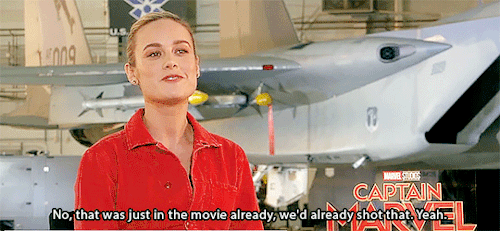
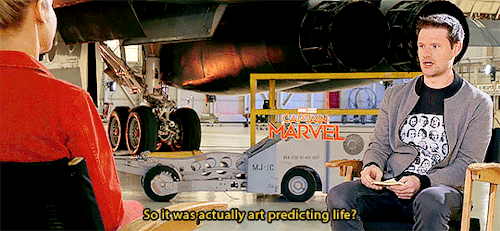
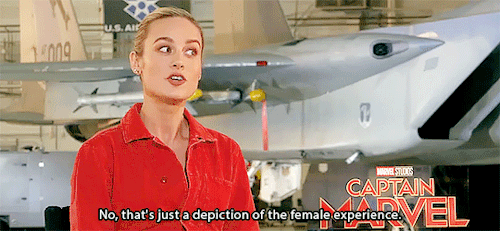
This is part of why art that depicts the female experience is so important because on one hand for women and girls it allows us to go ‘oh I have that experience too’ and those that aren’t in our bodies can look at it and go ‘wait, that happens to you?’ // Brie Larson for Yahoo
I just read your Civil War discourse post and, honestly, you get the biggest round of applause. I, by no means, hate Tony for the side he chose and I love him just as much as I do Steve, but Steve always gets a bad rap for his role in CW because everyone just wants to boil it down to him trying to protect Bucky. I think if most people had actually paid attention to that movie and what agenda the accords were hiding, no one would’ve signed them! Thanks for coming to my TED Talk. -🅱️
I also don’t hate Tony! I think he’s a complicated, fascinating character – though I confess I am a little frustrated with the direction the writers took with his character by undoing a lot of his growth in Iron Man 3 (which I thought was a good movie) in order to shoehorn him into the center of AOU and CA:CW, though that’s my own personal peeve. But man, I remember watching Iron Man (2008) a gazillion times when it came out and loving it to bits! And I love the ways in which he is the model of an Aristotlean Tragic Hero Archetype. RDJ’s performance is spectacular to boot.
And you’re spot on about people boiling things down – inaccurately – into being about Bucky. Part of the problem with the CA:CW discourse, I think, is the amount of focus on fandom around Stucky – and this isn’t a criticism of Stucky! Just about how fandom distortions around ships can alter perceptions:
There’s this myth in fandom that 100% of everything Steve does and thinks is completely about Bucky all the time. And while Bucky is absolutely an important part of Steve’s life, they are both individuals with their own priorities and their own choices. Steve has a strong sense of right and wrong, and a lot of experiences with corrupt institutions outside of Bucky on which he bases his decisions. But the fandom echo chamber reframes everything as being Bucky-centered in CA:CW for the romance of it, when…. that isn’t really accurate. And so Team Iron Man folks who are also exposed to this fanon then frame Steve as acting irrationally and making everything all about Bucky, because that’s the exaggerated fandom shipping narrative dominant on tumblr, despite that not being what happens in canon.
The thing about the Accords is – I don’t think ANYONE thought that some kind of agreement for ensuring More Bad Shit didn’t happen was a bad idea. Steve makes it clear that the structure of this specific law – which completely deprives the Avengers of any agency while putting dangerous amounts of power in the hands of a few countries’ governments (mainly the former-imperialist nations who have permanent seats on the UN Security Council) and denying human rights to Enhanced Individuals – is not something he’s comfortable with. And then there’s no compromise available, because the thing is being railroaded through with no time for deliberation, amendment, discussion, or even a fucking lawyer to look it over. This is misrepresented by the other side as Steve refusing any kind of oversight ever.
And part of the reason both sides end up talking past one another is that one side is arguing about whether or not the ideal of legislation like the Accords – and what they are allegedly supposed to accomplish – is right, and basing a pro-Accords argument on that, while the other is arguing against the reality of the Accords – and the agenda Ross actually designed them to accomplish – to point out that the actual implementation of the Sokovia Accords is an Authoritarian disaster. And those are two different conversations, and two positions that can be simultaneously right. The idea of some kind of legal framework that the Avengers should have to abide by in order to defend the rights of nations and individuals isn’t a bad one. The Accords are also not the right framework to make that happen.
-
 castiel-ro300 liked this · 5 years ago
castiel-ro300 liked this · 5 years ago -
 yikes-girl liked this · 5 years ago
yikes-girl liked this · 5 years ago -
 steveperilous liked this · 5 years ago
steveperilous liked this · 5 years ago -
 frostbitejump liked this · 6 years ago
frostbitejump liked this · 6 years ago -
 sherlockmod liked this · 6 years ago
sherlockmod liked this · 6 years ago -
 nanita90a liked this · 6 years ago
nanita90a liked this · 6 years ago -
 two-tailed--snake liked this · 6 years ago
two-tailed--snake liked this · 6 years ago -
 astridleongyoung liked this · 6 years ago
astridleongyoung liked this · 6 years ago -
 mars0h0d liked this · 6 years ago
mars0h0d liked this · 6 years ago -
 shadowmuldorz-blog liked this · 6 years ago
shadowmuldorz-blog liked this · 6 years ago -
 chil-perka-sayjin18-blog liked this · 6 years ago
chil-perka-sayjin18-blog liked this · 6 years ago -
 angrystudentrunaway6-blog liked this · 6 years ago
angrystudentrunaway6-blog liked this · 6 years ago -
 caffeineheroes reblogged this · 6 years ago
caffeineheroes reblogged this · 6 years ago -
 caffeineheroes liked this · 6 years ago
caffeineheroes liked this · 6 years ago -
 thereisnothinglefthere liked this · 6 years ago
thereisnothinglefthere liked this · 6 years ago -
 jaxxjho liked this · 7 years ago
jaxxjho liked this · 7 years ago -
 majanaika liked this · 7 years ago
majanaika liked this · 7 years ago -
 deadbloggoodbye liked this · 7 years ago
deadbloggoodbye liked this · 7 years ago -
 avinehoya-blog liked this · 7 years ago
avinehoya-blog liked this · 7 years ago -
 noxious76-blog liked this · 7 years ago
noxious76-blog liked this · 7 years ago -
 freefromperfection liked this · 7 years ago
freefromperfection liked this · 7 years ago -
 bluestar1937 liked this · 7 years ago
bluestar1937 liked this · 7 years ago -
 kaospersona liked this · 7 years ago
kaospersona liked this · 7 years ago -
 fandomizational liked this · 7 years ago
fandomizational liked this · 7 years ago -
 katenarux3 liked this · 7 years ago
katenarux3 liked this · 7 years ago -
 g-reenmari liked this · 7 years ago
g-reenmari liked this · 7 years ago -
 ironysyndrome liked this · 7 years ago
ironysyndrome liked this · 7 years ago -
 nodaleksinmyhouse liked this · 7 years ago
nodaleksinmyhouse liked this · 7 years ago -
 abarbaricyalp reblogged this · 7 years ago
abarbaricyalp reblogged this · 7 years ago -
 desertvintagewanderlust liked this · 7 years ago
desertvintagewanderlust liked this · 7 years ago -
 lety-salesy liked this · 7 years ago
lety-salesy liked this · 7 years ago -
 raincavallone liked this · 7 years ago
raincavallone liked this · 7 years ago -
 iolanthe-crybaby liked this · 7 years ago
iolanthe-crybaby liked this · 7 years ago -
 dominicaharris liked this · 7 years ago
dominicaharris liked this · 7 years ago -
 moonsbadasschild liked this · 7 years ago
moonsbadasschild liked this · 7 years ago -
 nightydan liked this · 7 years ago
nightydan liked this · 7 years ago -
 alsedes liked this · 7 years ago
alsedes liked this · 7 years ago -
 purplerain1997 liked this · 7 years ago
purplerain1997 liked this · 7 years ago -
 earlkashmir liked this · 7 years ago
earlkashmir liked this · 7 years ago -
 the-dragon-singer liked this · 7 years ago
the-dragon-singer liked this · 7 years ago -
 petpuppydog-blog liked this · 7 years ago
petpuppydog-blog liked this · 7 years ago -
 sipping-on-dr-pepper liked this · 7 years ago
sipping-on-dr-pepper liked this · 7 years ago -
 subtle-urchin-882 liked this · 7 years ago
subtle-urchin-882 liked this · 7 years ago -
 masterlokisev159 liked this · 7 years ago
masterlokisev159 liked this · 7 years ago